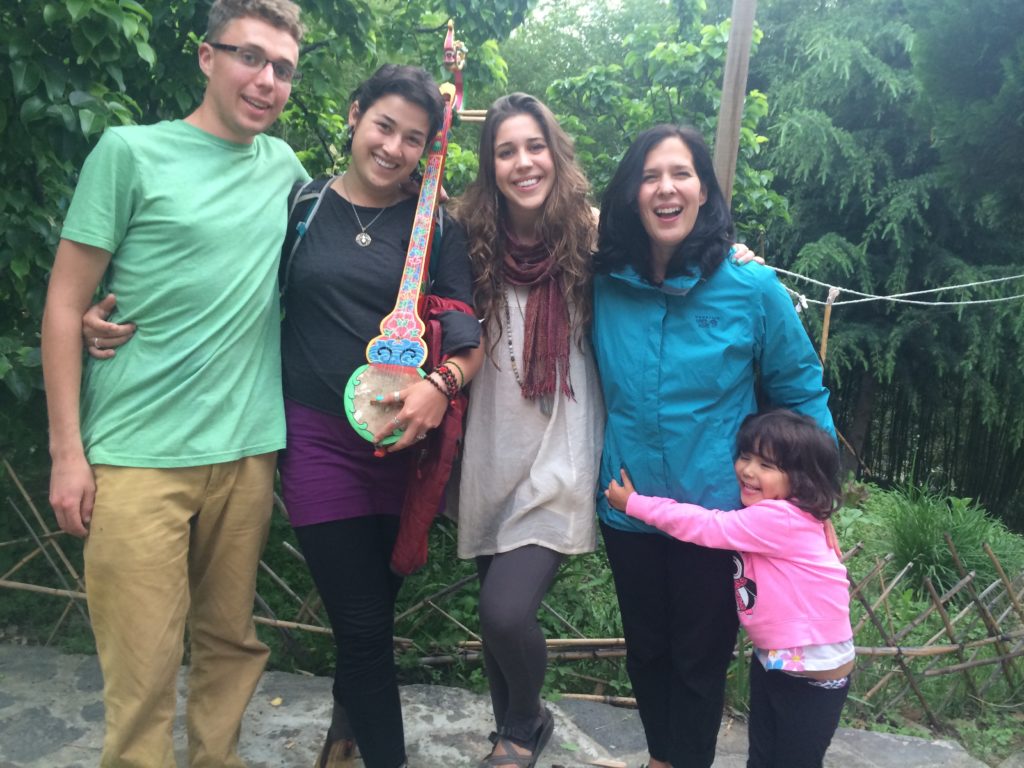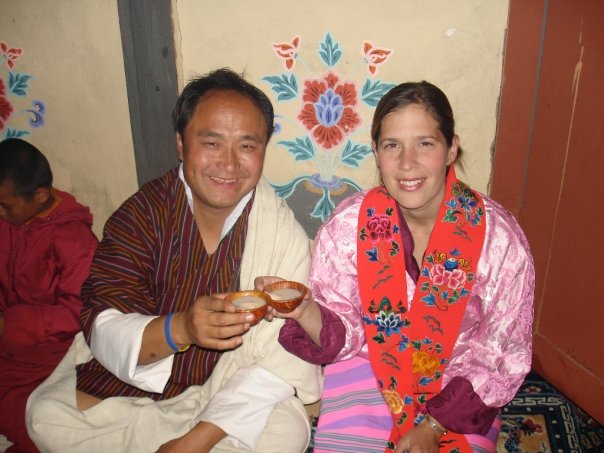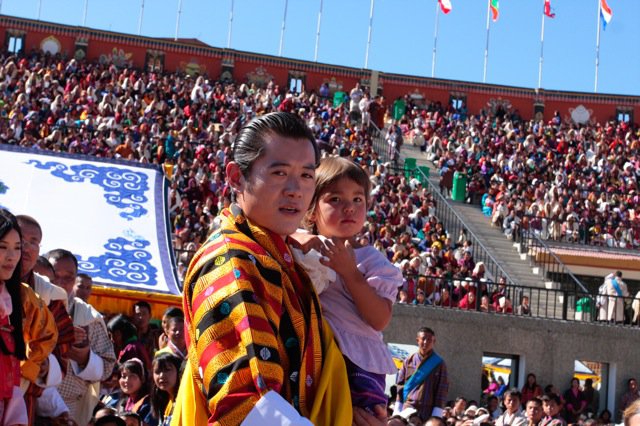
A few weeks back, I had the very fun and auspicious opportunity to host the Naropa Bhutan Study Abroad group with Professor Anne Parker here in the capital, Thimphu. It was something I had been dreaming about since I heard about its conception a few years back.
To see even one Westerner/foreigner here is still a rare sight. So, to actually have a group of fellow Naropans at my house was really over-the-moon exciting for me! They were, just as I suspected, uniquely authentic. They talked about how much they are enjoying their time in Bhutan—mixed feelings with only one month to go. I could see their longing for more time here.
 We had tea and shared stories and experiences. What I loved so much about them was how spacious and relaxed they were. This is why I feel a Naropa education is needed so much in the world, and especially here in Bhutan.
We had tea and shared stories and experiences. What I loved so much about them was how spacious and relaxed they were. This is why I feel a Naropa education is needed so much in the world, and especially here in Bhutan.
With Bhutan being one of the last Mahayana/Vajrayana countries in the world, you would think there would be more mind training, including basic Buddhist philosophy, taught right from the start in the school system. But, what you will find in most government schools is an educational system outdated from its implementation about 30 years ago by its neighbor, India. Like a lot of systems still developing here, education is going through a big transformation.
Since 2009, new curriculum has been emerging and new training is being offered to management levels of what is termed as GHN, or Gross National Happiness. It’s a model and a method to integrate cherished ideals and pillars of society passed down directly from Guru Rinpoche. To quote His Majesty the 5th King of Bhutan, “Today, GNH has come to mean so many things to so many people but to me it signifies simply – Development with Values. Thus, for my nation today GNH is the bridge between the fundamental values of kindness, equality, and humanity and the necessary pursuit of economic growth. GNH acts as our National Conscience guiding us towards making wise decision for a better future.”
 I believe that Naropa students and faculty, who are living, studying, and teaching in Bhutan, have something rare and precious to share with Bhutanese society. So, to mutually share and explore these foundations will be like a spark to turn the wheel of dharma together for the benefit of all sentient beings. My greatest wish is for this new relationship with Naropa University to grow into something wonderful, for the individual and for the country as a whole.
I believe that Naropa students and faculty, who are living, studying, and teaching in Bhutan, have something rare and precious to share with Bhutanese society. So, to mutually share and explore these foundations will be like a spark to turn the wheel of dharma together for the benefit of all sentient beings. My greatest wish is for this new relationship with Naropa University to grow into something wonderful, for the individual and for the country as a whole.


